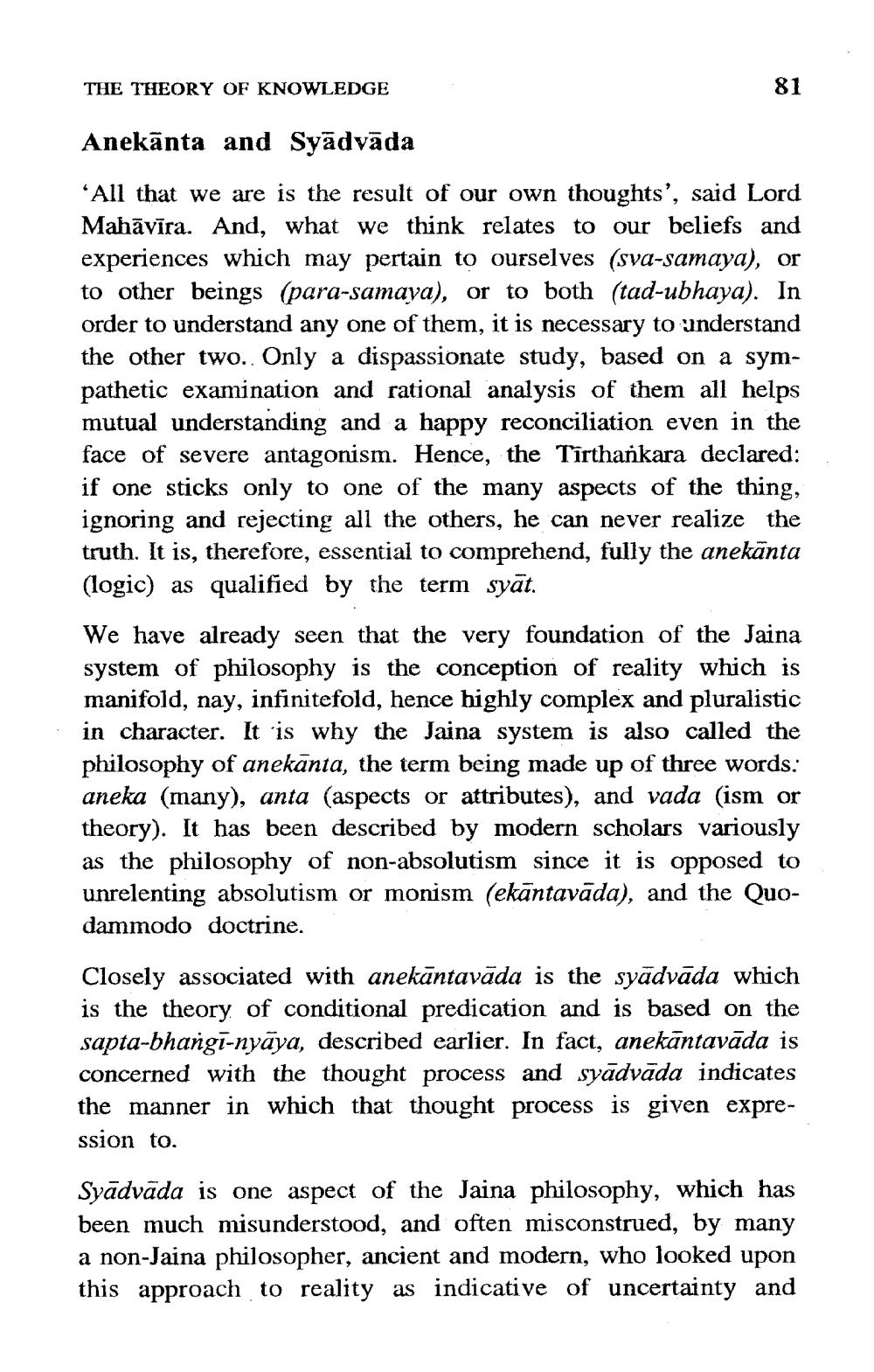________________
THE THEORY OF KNOWLEDGE
81
Anekānta and Syädvāda
*All that we are is the result of our own thoughts', said Lord Mahāvīra. And, what we think relates to our beliefs and experiences which may pertain to ourselves (sva-samaya), or to other beings (para-samaya), or to both (tad-ubhaya). In order to understand any one of them, it is necessary to understand the other two.. Only a dispassionate study, based on a sympathetic examination and rational analysis of them all helps mutual understanding and a happy reconciliation even in the face of severe antagonism. Hence, the Tīrthankara declared: if one sticks only to one of the many aspects of the thing, ignoring and rejecting all the others, he can never realize the truth. It is, therefore, essential to comprehend, fully the anekānta (logic) as qualified by the term syāt. We have already seen that the very foundation of the Jaina system of philosophy is the conception of reality which is manifold, nay, infinitefold, hence highly complex and pluralistic in character. It is why the Jaina system is also called the philosophy of anekānta, the term being made up of three words: aneka (many), anta (aspects or attributes), and vada (ism or theory). It has been described by modern scholars variously as the philosophy of non-absolutism since it is opposed to unrelenting absolutism or monism (ekāntavāda), and the Quodammodo doctrine. Closely associated with anekāntavāda is the syādvāda which is the theory of conditional predication and is based on the sapta-bhangi-nyāya, described earlier. In fact, anekāntavāda is concerned with the thought process and syādvāda indicates the manner in which that thought process is given expression to.
Syādvāda is one aspect of the Jaina philosophy, which has been much misunderstood, and often misconstrued, by many a non-Jaina philosopher, ancient and modern, who looked upon this approach to reality as indicative of uncertainty and




